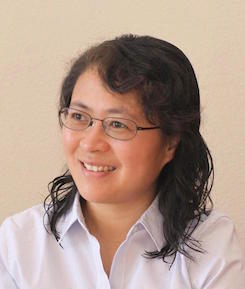Carnegie Mellon University
Lidar Simulation for Robotic Application Development: Modeling and Evaluation
Abstract: Given the increase in scale and complexity of robotics, robot application development is challenging in the real world. It may be expensive, unsafe, or impractical to collect data, or test systems, in reality. Simulation provides an answer to these challenges. In simulation, data collection is relatively inexpensive, scenes can be procedurally generated, and state [...]
Carnegie Mellon University
Adapting to Context in Robot Perception
Abstract: The promised future filled with robots sensing and acting intelligently in the world is near fruition, thanks in part to continuous progress in robotic perception. However, a number of challenges remain before robots and their perception systems can be truly reliable. In particular, we must consider what happens when highly complex perception systems designed [...]
Splitting the Equity Pie & Other Aspects of Equity Compensation
Abstract: Equity compensation can be a very mysterious concept for first-time entrepreneurs. Learn how to make critical decisions from the division of the Founders' Pie through stock option grants & vesting schedules. Biography: Frank Demmler is Innovation Works’ Vice President of The Entrepreneurial Services Team, the internal group that assists early stage companies’ efforts [...]
Carnegie Mellon University
Depth Imaging for Navigation in Challenging Environments
Abstract: Depth sensors for robust navigation must measure scenes in darkness, bright light, and in scattering media. Scanning LIDAR devices are the most robust to these conditions, but capture sparse measurements, are slow, and expensive. Consumer depth cameras, on the other hand, are inexpensive and produce dense, high rate depth measurements, but fail in bright [...]
Carnegie Mellon University
Learning with Auxiliary Supervision
Abstract: Supervised learning for high-level vision tasks has advanced significantly over the last decade. One of the primary driving forces for these improvements has been the availability of vast amounts of labeled data. However, annotating data is an expensive and time-consuming process. For example, densely segmenting a natural scene image takes approximately 30 minutes. This mode [...]
Inverse Reinforcement Learning with Conditional Choice Probabilities
Abstract: We make an important connection to existing results in econometrics to describe an alternative formulation of inverse reinforcement learning (IRL). In particular, we describe an algorithm to solve the IRL problem, using easy-to-compute estimates of the Conditional Choice Probability (CCP) vector, which is the policy function of an expert integrated over factors econometricians cannot [...]
RI Staff Appreciation Lunch
Private Event: By invitation only The annual RI administrative staff appreciation lunch. This will be a nice time to relax with colleagues and enjoy a good meal. There is no formal program per se. Hope to see you there!
Carnegie Mellon University
Using Multiple Fidelity Models in Motion Planning
Abstract: Hospitals and warehouses use autonomous delivery robots to increase productivity. Robots must reliably navigate unstructured non-uniform environments which requires efficient long-term operation that robustly accounts for unforeseen circumstances. However, unreliable autonomous robots need continuous operator assistance, which decreases throughput and negates a robot's benefit. Planning with high fidelity models is more likely to lead [...]
Data-Driven Learning Towards Perceptual Organization
Abstract: Computer vision has advanced rapidly with deep learning, achieving above human performance on some classification benchmarks. At the core of the state-of-the-art approaches for image classification, object detection, and semantic/instance segmentation is sliding window classification, engineered for computational efficiency. Such piecemeal analysis of visual perception often has trouble getting details right and fails miserably [...]
Learning to Drive
Abstract: Why is our understanding of sensorimotor control behind our understanding of perception? I will talk about structural differences between perception and control, and how these differences can be mitigated to help advance sensorimotor control systems. Judicious use of simulation can play an important role and I will describe some simulation tools that we have [...]









